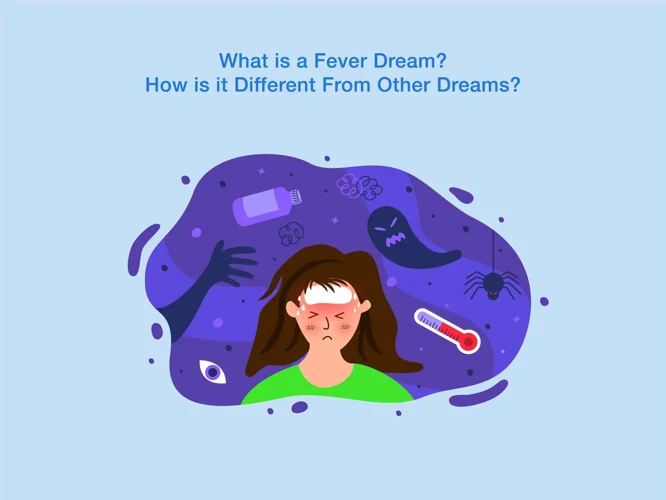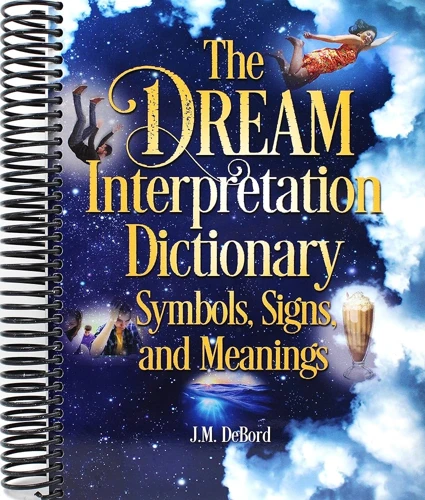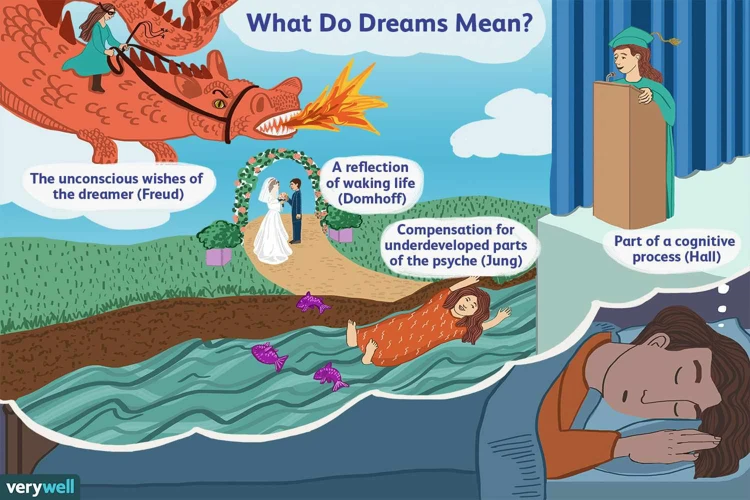Dreams have long fascinated and intrigued humanity, offering glimpses into the depths of our subconscious minds. From mysterious and cryptic symbols to vivid and intense emotions, dreams often leave us pondering their meaning. One common element that can be found in dreams is the experience of pain. Whether it’s physical, emotional, or psychological, dream pain can leave us feeling perplexed and seeking answers. In this comprehensive guide to interpreting the meaning of feeling pain in dreams, we will delve into the various types of dream pain, explore the symbolism behind it, examine common dream scenarios, and provide insights into the psychological, emotional, and physical interpretations. So, come along on this journey into the enigmatic realm of dream pain and unlock the secrets that lie within.
Common Types of Dream Pain

Dream pain can manifest in various forms, each carrying its own unique significance. One common type of dream pain is physical pain, where individuals may experience sensations of being hurt, injured, or attacked. This can range from feeling the sting of a punch to the ache of a broken bone. Another type of dream pain is emotional pain, which often arises from feelings of heartbreak, sadness, or loss. These dreams can leave us feeling overwhelmed with grief or anguish. Additionally, there is psychological pain, where individuals may experience distressing thoughts, nightmares, or anxiety within their dreams. These types of dream pain may symbolize deeper issues within our psyche that require attention and understanding. By examining the different types of dream pain, we can begin to unravel the intricate layers of symbolism within our dreams and gain a deeper understanding of our own subconscious desires, fears, and experiences.
1. Physical Pain
Physical pain in dreams can take many forms, leaving individuals with a range of sensations and discomfort. This type of dream pain often signifies a need for healing or addresses physical ailments experienced in waking life. The pain may be localized, such as a stabbing sensation in a specific body part, or a general feeling of soreness throughout the entire body. It is essential to pay attention to the specific areas of the body where the pain is felt, as they can provide valuable clues to the interpretation of the dream. For example, feeling pain in the head may indicate a need for clearer thinking or decision-making, while pain in the heart could symbolize emotional distress or heartache. By analyzing the details and context of the dream, individuals can begin to unravel the deeper meaning behind the physical pain experienced in their dreams.
2. Emotional Pain
Emotional pain in dreams can be intense and often reflective of our deepest emotions. It can signify unresolved issues, past traumas, or ongoing heartbreak. When experiencing emotional pain in dreams, it is essential to pay attention to the specific emotions being felt, as they may hold valuable insights into our waking lives. For example, dreaming of heartbreak could indicate feelings of loss or rejection in relationships. Similarly, dreams of grief may suggest unresolved emotions surrounding the death of a loved one. It’s important to explore these emotions further and seek solutions to heal and grow. Dreaming of seeing a duplicate person or encountering a familiar face in a dream could also be linked to emotional pain, as it may symbolize a desire for connection or unresolved issues from the past resurfacing. By acknowledging and addressing emotional pain in our dreams, we can begin to navigate a path towards healing and personal growth.
3. Psychological Pain
Psychological pain in dreams is a deeply personal and subjective experience. It can manifest in various ways, such as nightmares, distressing thoughts, or feelings of anxiety. These dreams may be indicative of unresolved issues or traumas that we have tucked away in our subconscious mind. Exploring the symbolism behind psychological pain in dreams can provide valuable insights into our emotional well-being and mental state. By addressing these underlying concerns, we can potentially find healing and achieve a greater sense of self-awareness and personal growth. It is important to seek professional help if psychological pain persists or significantly impacts our daily lives.
Interpreting the Symbolism

Interpreting the symbolism behind dream pain is an integral part of understanding the deeper meaning of our dreams. One key aspect to consider is the location of pain. Different areas of the body can have specific symbolic associations. For example, pain in the head may represent intellectual challenges or conflicts, while pain in the chest could signify emotional turmoil or matters of the heart. The intensity of pain is another important factor to consider. A mild ache might suggest a minor issue or concern, whereas excruciating pain could indicate a more significant problem that requires attention. The duration of pain in a dream may offer clues about the longevity or urgency of a situation in waking life. By closely analyzing these aspects of dream pain, we can begin to decipher the messages and symbolism within our dreams, providing us with valuable insights into our emotions, experiences, and subconscious mind.
1. Location of Pain
In interpreting the meaning of dream pain, the location of pain plays a crucial role. The specific area where the pain is felt in the dream can offer valuable insights into its symbolism. For example, pain in the chest region could signify emotional distress or heartbreak, while pain in the head may indicate stress or intellectual struggles. Pain in the abdomen might be linked to issues related to control or digestion, and pain in the limbs could signify feelings of being restrained or limited in one’s actions. By paying attention to the location of pain in our dreams, we can unravel hidden messages and gain a deeper understanding of our subconscious thoughts and emotions.
2. Intensity of Pain
When interpreting the meaning of pain in dreams, the intensity of the pain experienced can provide valuable insights. The intensity of pain in a dream can vary greatly, ranging from mild discomfort to excruciating agony. The level of intensity can indicate the significance of the underlying emotions or issues being represented. For example, a sharp, intense pain may suggest that the dream is highlighting a deeply rooted trauma or unresolved emotional turmoil. On the other hand, a dull or mild pain may indicate a less intense emotional state or a subtle signal from the subconscious. It is important to pay attention to the intensity of pain in dreams as it can serve as a cue to the level of impact and urgency associated with the message the dream is trying to convey. Understanding the intensity of pain can help unravel the hidden meanings and messages embedded within our dreams.
3. Duration of Pain
The duration of pain in a dream can provide valuable insights into its meaning. The length of time that we experience pain in our dreams can vary, ranging from fleeting moments to prolonged suffering. Short-lived pain may indicate a temporary or passing issue in our waking lives. It could be a reflection of a minor setback or a fleeting emotion that we are currently grappling with. On the other hand, dreams with prolonged pain could signify deeper-rooted issues or unresolved emotions that have been festering within us. These dreams may indicate the need for introspection, healing, or seeking resolution in our waking lives. Understanding the duration of pain in our dreams can offer clues to the underlying message and guide us towards finding solutions or closure.
Common Dream Scenarios and Their Meanings

Dreams can present us with a wide range of scenarios, each carrying its own symbolic meaning and emotional significance. One common dream scenario is being injured or attacked. This type of dream often reflects feelings of vulnerability, powerlessness, or a sense of being threatened in our waking lives. It may suggest that we need to assert ourselves or confront a difficult situation. Another common dream scenario is experiencing illness or disease. These dreams can symbolize physical or emotional ailments that may require attention or healing. They could also represent a need for self-care and self-reflection. Emotional trauma or heartbreak is another prevalent dream scenario, where individuals may relive painful experiences or confront unresolved emotions. These dreams often indicate the need for processing and healing emotional wounds. Feeling trapped or stuck in a dream scenario can symbolize a lack of freedom or progress in our waking lives, prompting us to explore ways to break free from limitations. Lastly, losing a loved one in a dream scenario can represent feelings of grief, sadness, or the need to let go of something or someone in our waking lives. Exploring and interpreting these common dream scenarios can provide valuable insights and guidance for our personal growth and emotional well-being.
1. Being Injured or Attacked
Dreams involving being injured or attacked can leave a lasting impact on our psyche. When experiencing this type of dream, it is important to consider the symbolism behind the pain. Being injured or attacked in a dream can represent feelings of vulnerability, fear, or a sense of powerlessness in waking life. It may also signify unresolved conflicts or past traumas that have not been dealt with. Exploring the triggers or underlying emotions associated with this dream scenario can provide valuable insights into our own inner struggles and the need to address any lingering issues. By understanding the symbolism within these dreams, we can begin to heal and grow from past wounds, ultimately empowering ourselves to overcome challenges and find inner peace.
2. Experiencing Illness or Disease
Experiencing illness or disease in a dream can be incredibly unsettling and may leave us wondering about its significance. When we dream about being sick or afflicted by a disease, it often symbolizes a deeper emotional or psychological imbalance within ourselves. These dreams may indicate that we are feeling overwhelmed, burdened, or drained in our waking lives. They could also be a manifestation of our anxieties about our health or fears of losing control. It is essential to pay attention to the specific details of the dream, such as the type of illness or disease experienced and the emotions associated with it. By analyzing these elements, we can gain insights into our overall well-being and identify areas in our lives that may require attention or healing. For example, dreaming about a specific illness could be a metaphorical representation of a particular issue or problem we are facing. It is also worth considering any personal experiences or concerns related to health that may be influencing our dreams. Understanding the symbolism and messages behind these dreams can help us navigate our waking lives with a greater sense of self-awareness and take proactive measures to address any underlying issues.
3. Emotional Trauma or Heartbreak
Dreams involving emotional trauma or heartbreak can be incredibly intense and unsettling. These dreams may take various forms, such as reliving a painful breakup, experiencing the loss of a loved one, or feeling overwhelming grief. The emotions felt during these dreams are often vivid and can leave a lingering impact upon awakening. Emotional trauma or heartbreak in dreams may symbolize unresolved feelings or traumas that have not been fully processed or healed in our waking lives. These dreams may serve as a reminder to address and work through these emotional wounds in order to find healing and closure. Exploring the underlying emotions and events connected to these dreams can potentially lead to personal growth and emotional healing. For more insight into dream symbolism, you may find it helpful to read about the biblical meaning of perfume in a dream or the significance of coming across an old photo
in a dream.
4. Feeling Trapped or Stuck
When dreaming about feeling trapped or stuck, it can signify a sense of helplessness or confinement in your waking life. This dream theme may manifest in various scenarios, such as being trapped in a small room, stuck in a maze, or unable to move or escape a certain situation. The feeling of being trapped can symbolize a lack of freedom, control, or the inability to make important decisions. It may also represent a fear of change or being confined to a particular circumstance or relationship. Paying attention to the details of the dream, such as the location, the people involved, and your emotions during the dream, can provide further insights into the specific areas of your life where you may be feeling trapped or stuck. By acknowledging these feelings in your waking life, you can work towards finding solutions and breaking free from any perceived limitations.
5. Losing a Loved One
Losing a loved one is a deeply painful and emotionally charged experience, and when this theme appears in dreams, it can have a profound impact. Dreams of losing a loved one can evoke intense feelings of grief, sadness, and longing. These dreams may reflect the fear of abandonment or the overwhelming sense of loss that accompanies the death of a loved one. They might also serve as a way for the dreamer to process their emotions surrounding a recent loss or to explore their unresolved feelings towards someone who has passed away. Symbolically, dreaming of losing a loved one may also represent the fear of losing a significant relationship or the need to heal and come to terms with a previous loss. It’s important to approach these dreams with compassion and understanding, acknowledging the deep emotions they can bring to the surface.
Psychological and Emotional Interpretations

When it comes to psychological and emotional interpretations of dream pain, there are several key factors to consider. One of these
Subscribe to Our Newsletter
Sign up to receive the latest news and updates.
1. Unresolved Issues or Traumas
Unresolved issues or traumas can manifest in dream pain, serving as a reflection of our subconscious struggles. Dreams often provide a safe space for us to explore and process unresolved emotions or traumatic experiences that we may have suppressed in our waking lives. When we experience dream pain related to unresolved issues or traumas, it is a sign that there are unresolved emotions or events that require our attention. These dreams can serve as a catalyst for healing and growth, urging us to confront and address the root causes of our pain. It is crucial to pay attention to the specific details and symbols surrounding the dream pain, as they can provide clues to the nature of the unresolved issues or traumas. By acknowledging and working through these emotions, we can move towards healing and find greater peace within ourselves.
2. Fear of Loss or Rejection
2. Fear of Loss or Rejection:
– Dreaming of experiencing pain related to loss or rejection can reflect deep-seated fears and insecurities. These dreams may arise from a fear of losing someone or something important in our lives, such as a loved one, a job, or a relationship.
– The pain felt in these dreams symbolizes the emotional turmoil and vulnerability associated with the fear of abandonment or rejection. It may indicate a need for reassurance, validation, or a fear of being alone.
– These dreams can be a subconscious reminder to address any unresolved issues or anxieties surrounding rejection or loss in our waking lives. They prompt us to examine our emotional attachments and work towards cultivating healthier coping mechanisms for dealing with these fears.
– If recurring, dreams of loss or rejection may indicate a need for self-reflection and a deeper exploration of our own feelings of worthiness and self-acceptance. By understanding these fears, we can begin to heal and cultivate stronger, more fulfilling relationships in our waking lives.
3. Suppressed Emotions or Deep-seated Anger
– Suppressed Emotions: Dreams that involve suppressed emotions often serve as a means of expression and release for feelings that have been buried or ignored in waking life. These dreams may be characterized by intense emotional scenes, where individuals may find themselves crying, shouting, or expressing anger that has been repressed. The dream acts as a safe space to acknowledge and confront these suppressed emotions, potentially leading to catharsis and emotional healing.
– Deep-seated Anger: Dreams involving deep-seated anger can be indicative of unresolved conflicts or long-standing frustrations within oneself or towards others. These dreams may feature scenarios of confrontation, aggression, or even violence. It is important to pay attention to the source of the anger in the dream, as it may provide insights into the underlying causes of pent-up resentment or unresolved issues in waking life. Exploring these dream scenarios can help individuals identify and address areas of their lives that require attention and resolution to achieve emotional well-being.
Dreams that involve suppressed emotions or deep-seated anger offer a window into the intricate workings of our subconscious minds. By paying attention to these dreams and reflecting on their symbolism, individuals can gain a better understanding of their emotional state and work towards resolving any suppressed or unresolved feelings. Understanding and addressing these emotions can contribute to personal growth and emotional healing.
Physical and Health-related Interpretations
Physical pain experienced in dreams can often have deeper implications related to our overall health and well-being. These dream scenarios can act as signals from our bodies, alerting us to potential issues or areas of concern. For instance, if you experience recurring dream pain in a specific area of your body, such as the chest or head, it could indicate an underlying health problem or discomfort. Paying attention to these dream signals and seeking medical advice may help in early detection and prevention of potential health issues. Dream pain can serve as warning signs or premonitions, urging us to take better care of ourselves and make necessary lifestyle changes. Stress and anxiety can also manifest as physical pain in dreams, reminding us to prioritize self-care and find healthy ways to manage stress. By closely examining the physical and health-related interpretations of dream pain, we can gain valuable insights into our overall well-being and take proactive steps towards maintaining a healthy lifestyle.
1. Signals from the Body
Dreams possess a remarkable ability to serve as messengers from our own bodies. When it comes to the topic of ‘Signals from the Body‘, dream pain can act as a symbolic representation of physical sensations or discomfort that our bodies may be experiencing. For example, if you dream of a throbbing headache, it might indicate that you are carrying stress or tension in your waking life. Likewise, dreaming of a stomachache could be a subconscious reflection of digestive issues or anxiety. By paying close attention to these bodily signals in our dreams, we can gain insight into our overall health and well-being. It is important to remember that dream pain should not be taken as a substitute for professional medical advice, but rather used as a tool to encourage self-reflection and to prompt us to address any potential underlying physical concerns.
2. Warning Signs or Premonitions
Dreams have long been believed to serve as a window into our subconscious, and at times, they may even provide us with warning signs or premonitions. In these types of dreams, we may experience pain that is directly related to a foreseen event or impending danger. For example, dreaming of a car accident and feeling the physical pain associated with it could potentially symbolize an upcoming encounter or a warning to exercise caution while driving. These dreams can serve as powerful intuitive messages, urging us to pay attention to our surroundings and make informed decisions. It is essential to take these dreams seriously and consider the potential implications they may hold in our waking lives.
3. Stress and Anxiety Indicators
Dreams can also serve as indicators of stress and anxiety in our lives. When we experience pain in our dreams that is associated with stress and anxiety, it may be a reflection of the overwhelming emotions we are experiencing in our waking lives. Stress and anxiety indicators in dreams can range from feeling physically constricted or suffocated to experiencing sensations of pressure or tightness. These dreams may be a subconscious reminder to address and resolve the sources of stress and anxiety in our waking lives. They can prompt us to take steps towards self-care, seek support, or make necessary changes to reduce the overall stress and anxiety we are experiencing. By paying attention to these indicators in our dreams, we can gain valuable insight into our emotional well-being and take proactive measures to find balance and relief.
Conclusion
In conclusion, the interpretation of dream pain is a complex and multifaceted endeavor. By exploring the various types of dream pain, analyzing the symbolism behind it, and understanding common dream scenarios, we can gain valuable insights into our psychological, emotional, and physical well-being. Dream pain serves as a powerful tool for self-reflection and introspection, allowing us to uncover unresolved traumas, fears, and hidden emotions. It is important to remember that the interpretation of dream pain is highly subjective, and personal experiences and associations play a significant role in deciphering their meaning. Through careful examination, reflection, and the exploration of our own unique dream landscape, we can begin to unlock the secrets and wisdom that dreams have to offer. So, the next time you find yourself feeling pain in a dream, embrace the opportunity for self-discovery, and let your dreams guide you towards a deeper understanding of yourself.
Frequently Asked Questions
1. Can physical pain in dreams be felt in real life?
While dreams can evoke vivid sensations, such as physical pain, these sensations are not physically felt in the waking world. Dream pain is a product of our subconscious mind and does not have a direct impact on our physical body.
2. Why do we experience emotional pain in dreams?
Emotional pain in dreams often stems from unresolved emotions or past traumas. Our dreams provide a platform for our subconscious to process and release these intense emotions, allowing us to heal and find resolution.
3. Can psychological pain in dreams indicate underlying mental health issues?
Psychological pain in dreams can occasionally reflect underlying mental health issues, but it is essential to remember that dreams are symbolic and not diagnostic. If you have concerns about your mental health, it is advisable to consult a professional therapist or psychologist.
4. What does it mean when we dream about being injured or attacked?
Dreams of being injured or attacked often symbolize feelings of vulnerability or being under attack in our waking life. It may indicate a need to protect ourselves or address conflicts and challenges we are facing.
5. Is dreaming about illness or disease a sign of impending health issues?
Dreams of illness or disease are typically not prophetic in nature. Instead, they can represent underlying stress, anxiety, or fears about our health. If you have concerns about your well-being, it is advisable to consult a medical professional.
6. What does dreaming of emotional trauma or heartbreak signify?
Dreams of emotional trauma or heartbreak often signify unresolved emotions or grief in our waking life. It can be an opportunity to process these emotions, find closure, and begin the healing process.
7. Why do we experience dreams of feeling trapped or stuck?
Dreams of feeling trapped or stuck commonly represent a sense of being overwhelmed, stuck in a situation, or lacking freedom in our waking life. It may indicate a need to reassess our circumstances and find alternative paths forward.
8. Is there a deeper meaning behind dreaming about losing a loved one?
Dreams of losing a loved one can evoke intense emotions, but it is essential to remember that they are symbolic representations. These dreams may reflect our fears of separation, abandonment, or unresolved emotions related to the person in question.
9. How can unresolved issues or traumas manifest in our dreams?
Unresolved issues or traumas can manifest in our dreams as recurring themes, intense emotions, or symbolic representations of the event or experience. Dreams provide an opportunity to bring these unresolved matters to the surface and work through them.
10. Can dream pain reveal repressed anger or emotions?
Yes, dream pain can be an indication of repressed anger or deep-seated emotions that need to be addressed. By paying attention to the context and symbolism of the dream, we can gain valuable insights into the emotions that may be lingering beneath the surface.










